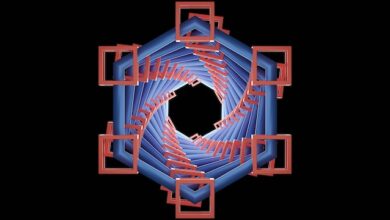The Paradigm Shift: Exploring How Technology is Revolutionizing Our Reality

We are in the midst of a technological revolution that is changing the nature of our daily lives, our relationships with one another, and the world at large. Technology is transforming our world in ways we could never have foreseen, even a few decades ago, from the rise of artificial intelligence and the Internet of Things to the development of virtual and augmented reality. This article dives into the technological revolution and the resulting paradigm shift.
The Rise of Artificial Intelligence
The advent of AI has revolutionized several fields and changed how we live. It’s safe to say that sectors as diverse as medicine, banking, transportation, and manufacturing have all benefited greatly from the advent of machine learning algorithms and deep neural networks. With the help of AI, computers can sort through mountains of data, spot trends, and make precise forecasts. AI is quickly becoming a staple of modern life, from voice-activated digital assistants like Siri and Alexa to autonomous vehicles.
The Internet of Things (IoT) Connecting Everything
Through the IoT, commonplace items may now communicate with one another and the outside world. Thanks to this web of networked gadgets, our homes, towns, and workplaces are now smart settings. Using linked products, smart thermostats, and wearable technology has made our daily lives easier and more individualized. Additionally, IoT-enabled infrastructure reduces waste, increases efficiency, and bolsters security. The capacity to collect data in real-time and draw meaningful conclusions is helping to shape a more efficient and sustainable future.
Virtual and Augmented Reality Change Experiences
Technologies like virtual reality (VR) and augmented reality (AR) are expanding our perception of the world and our opportunities. Virtual reality (VR) puts viewers in a simulated setting, while augmented reality (AR) superimposes digital data over the actual world. The gaming, entertainment, academic, and medical fields are just a few that are seeing revolutionary changes because of these innovations. Virtual reality (VR) technology enables us to go on adventures, visit faraway lands, and encounter previously impossible scenarios. Conversely, Augmented Reality (AR) improves our perspective of reality by delivering timely data and engaging content. Virtual reality (VR) and augmented reality (AR) are revolutionizing education, entertainment, and interaction with the physical world, from virtual museum tours to immersive training simulations.
Automation and the Future of Work
The nature of employment is also changing due to technological advancements. Robotics and AI-enabled automation are transforming whole sectors by eliminating monotonous jobs. This opens the door to new possibilities and raises worries about employment loss. Success in the future workplace will need the capacity to learn quickly and acquire new skills. Automation may release workers to concentrate on higher-order tasks like creativity, invention, and problem-solving. Committing to lifelong learning and acquiring new abilities is essential to keep up with the ever-changing technological world.
Conclusion
There is no denying that technological advancement has resulted in a paradigm shift. The advent of technologies like artificial intelligence, the Internet of Things, VR/AR, and automation profoundly alters our everyday experiences. These innovations bring about many positive outcomes but also have serious ethical and societal concerns that must be addressed. As technology advances at an unprecedented rate, it is up to us to responsibly utilize its capabilities and create a future that optimizes those advantages for everyone. We can only succeed in this exciting period of technological transformation if we can adapt to the quickly shifting global landscape.




